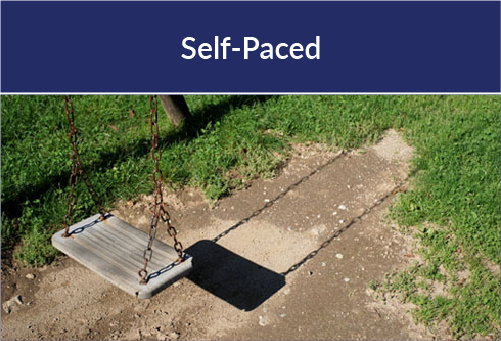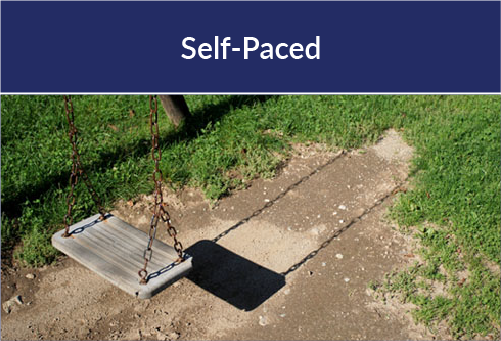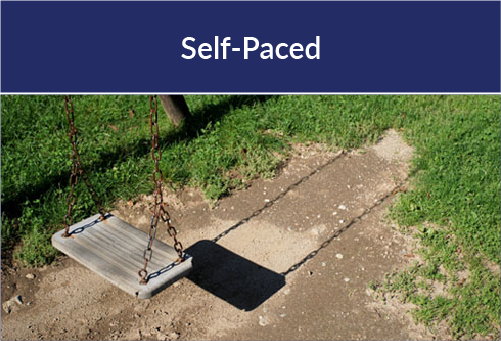


This first course in the Missing Child Investigations in Indian Country (MCI-IC) online training series introduces the series, and is specifically designed to support understanding of the six key challenges law enforcement officers and supporting agencies working in or with Indian Country communities often face when a child goes missing, including: Not having a clearly defined starting point for the investigation; proper identification and utilization of resources; increasing risk with the passage of time; the emotionally charged nature of the case; addressing and managing the media; and jurisdictional, geographic and cultural dynamics of investigative work in Indian Country.

The second course in the Missing Child Investigations in Indian Country (MCI-IC) online training series is designed to help law enforcement officers perform an initial assessment in a missing child investigation in Indian Country. An understanding of the victim risk assessment and missing child categories is crucial in missing child investigations. This course will review various missing child categories and identify factors that aid in the formulation of the initial assessment, a process of elimination based on the specific incident fact pattern as it relates to the missing child categories. This assessment process creates the foundation for the formulation of a strategy in the missing child investigation.

It is important for forensic interviewers to know the full extent of their options when transitioning to a topic of concern or focusing a child on information that is known outside of the forensic interview. This information, often called externally verifiable information, can be used in a legally defensible manner when interviewers assess and apply the information after critically thinking about its use. This presentation will offer some guidance on how to assess externally verifiable information. Research-based interview approaches will be discussed. Participants will do activities that enhance critical thinking.

Gain a deeper understanding of who trauma impacts and how it presents itself from within the US population. Hear about intergenerational trauma and survival from Viktor Frankl, a World War II survivor who will share first-hand experiences with you. Learn how trauma and criminal behavior are connected.

Hear from a long time AMBER Alert Coordinator and Public Information Officer (PIO) with the California Highway Patrol about the challenges associated with being a PIO during one of the most important and time-sensitive law enforcement events that can occur, a child abduction. Hear how PIOs can meet the expectations and challenges modern forms of communication present. Identify the different types of audience members that receive the information during an AMBER Alert and recognize best practices and common missteps which can happen during an AMBER Alert.

Child sex trafficking (CST) is like no other crime. Victimization may happen hundreds of times and can be difficult to identify due to the victims being missing children coupled with the trafficker’s hold on victims. Dissect the crime of CST, its complex nature, and discover how to investigate this crime fully. Develop trauma-informed approaches to ensure your victim interview does not retraumatize and you gain critical information to identify corroborative evidence. Examine the trafficker’s profile and motivation, how they impact your suspect interview, and proven suspect interview strategies. Recognize common evidence available, legal hurdles, and common defenses of traffickers.

The eleventh course of the Missing Child Investigations in Indian Country (MCI-IC) online series explores the neighborhood investigation; a comprehensive, in-depth effort to locate the child and gather information about individuals present near key locations when the child went missing. Building on the preliminary canvass introduced in Course 5, this phase involves detailed interviews and exhaustive searches. Research consistently highlights its critical role in child abduction cases.

The third course in the Missing Child Investigations in Indian Country (MCI-IC) online training series is designed to help law enforcement officers perform nonfamily and stereotypical abduction assessments in a missing child investigation in Indian Country. The course will present the behavioral tools to assess whether the reported abduction is a nonfamily abduction, stereotypical abduction or possibly, a false allegation of child abduction. The behavioral aspects used in this assessment process will primarily focus on the victim’s age and location of disappearance as these relate to the offender’s behavior and motivation. Understanding the common characteristics, motivations, and behaviors of offenders who abduct children can play a significant role in the successful investigation of missing or abducted children.

The eighth course in the Missing Child Investigations in Indian Country (MCI-IC) online training series is designed to expose law enforcement to the significance of victimology for risk assessments. When investigations lack a crime scene or witnesses, the only commonly known factor is the victim's identify. An extensive victimology is therefore critical in assessing the child’s risk of victimization. Victimology is a comprehensive collection of personal information of the missing child and their immediate family that addresses personality, lifestyle, and patterns that reveal specific risks, vulnerabilities, and stressors for the child. The victimology forms the basis for the missing child risk assessment.

The ninth course in the Missing Child Investigations in Indian Country (MCI-IC) online training series is designed to expose law enforcement to the case management of an expanding missing child investigation in Indian Country. The mysterious disappearance of a child can quickly evolve into a major case resulting in the rapid depletion of police resources. Missing child investigations in Indian Country are complex and often require a task force of multiple tribal, state, and federal agencies. To manage the investigation effectively, resources are assigned to each process, which are broken down into smaller components based on investigative taskings or processes. Case management involves overseeing and coordinating the components and investigative processes. This course will provide an in-depth review of managing the components and coordinating the investigative processes.
